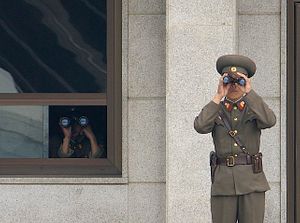North Korea’s provocations are gaining steam. After the dramatic demolition of the iconic inter-Korean liaison office, now Pyongyang is gearing up to deploy military units to what were previously demilitarized areas of cooperation between the Koreas, escalating tensions in the peninsula.
On the surface, it seems that Pyongyang has no intention to talk to South Korea anymore. The North even humiliated the South by openly rejecting Seoul’s offer to send special envoys for talks, which was seen as a slap in the face by officials in South Korea who wanted to be discreet about the request.
There are many different interpretations of Pyongyang’s moves emerging from South Korea and its neighbor Japan. The dominant views are that North Korea will escalate its provocations until it sees the reactions from South Korea and the United States that it wants.
“North Korea is pressuring South Korea to demand the U.S. to ease sanctions,” argued Chosun Ilbo, South Korea’s largest conservative-oriented newspaper, in an editorial.
“The U.S. is showing a cold response. President Trump completely ignored the North’s actions. The North will escalate the crisis until the U.S. shows interest,” the paper added.
Chosun Ilbo also said that military provocations against the South are a set step, and there is a high possibility of local provocations targeting South Korea’s territory and territorial waters.
South Korea’s major liberal daily, Kyunghyang Shinmun, shared a similar view. The paper said in its latest editorial that North Korea’s hard-line stance seems to be due to its unprecedented economic difficulties, caused by sanctions against the North coupled with the outbreak of COVID-19. In response to the pandemic’s emergence in China, North Korea closed their shared border in January – which had the side effect of gutting trade with Pyongyang’s top partner.
The recent drama could be a “brink-end tactic” to force action from U.S. President Donald Trump ahead of the November presidential election, the paper noted.
Although North Korea has not made it clear what it wants to achieve with the recent moves or where it is heading exactly, there are signs that help understand Pyongyang’s motive.
One of the latest signs is a report from Choson Sinbo, a Tokyo-based pro-North Korea newspaper. It is published and managed by the General Association of North Korean Residents in Japan, locally known as Chongryon. Even though the newspaper is not directly governed by the North, it maintains close ties with Pyongyang and acts as a mouthpiece for the Kim regime.
The paper said on June 18 that the intensity and timing of North Korea’s next move would be determined by the reactions of the South Korean government.
The paper warned that reckless remarks and actions by the South Korean government, which is blinded by the belief that the South Korea-U.S. alliance takes priority over inter-Korean agreements and siding with the U.S. brings peace, would trigger “tougher retaliatory measures” from the North.
If the United States, which has failed to abide by the spirit of the North Korea-U.S. summit for the past two years and blocked progress in inter-Korean relations, keeps intervening in inter-Korean relations, which is an internal issue of the nation, it could face “something difficult to handle,” the paper warned.
The message is clear: The North is going to decide its next move based on reactions from South Korean and the United States. And thus these reactions should be favorable to Pyongyang.
Unfortunately, North Korea’s hope is unlikely to be realized, given current reactions from Washington and Seoul.
The United States has not had much of a reaction to speak of, which is exactly what Pyongyang does not want to see. Meanwhile, the South Korean government of Moon Jae-in – who has made outreach to North Korea a top priority since assuming office in 2017 — is hitting back.
Citing the demolition of the liaison office and a series of slanders from the North, Yoon Do-han, the South Korean president’s senior secretary for public communication said on June 17 that South Korea was clearly warning that it will no longer tolerate these irrational remarks and actions by the North. Yoon said that Pyongyang’s recent moves were a fundamental breach of the trust that the leaders of South and North have built up until now.
The tone and selection of words were the strongest since Moon took office in 2017.
Several domestic media outlets have also urged the South government to revamp its North Korea policies.
“The government should overhaul its policy toward North Korea. The current policy is centered with the premise that North Korea will carry out denuclearization,” conservative daily Dong-A Ilbo said in an editorial on June 17.
It also urged that foreign affairs and national security officials, whom it accused of making inaccurate judgments and policy decisions, should also be replaced.
“North Korea has taken a hard-line stance toward the South since last year, but its [Seoul’s] diplomatic and security officials have failed to respond to provocations due to groundless optimism,” the paper added.

































